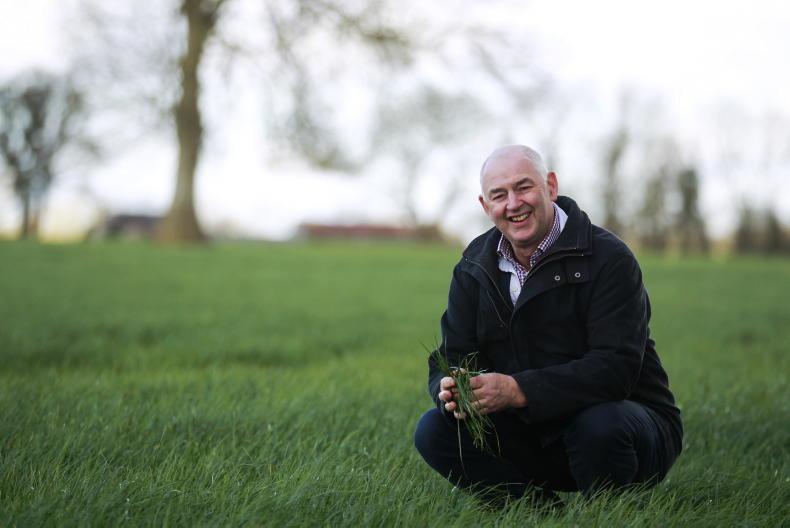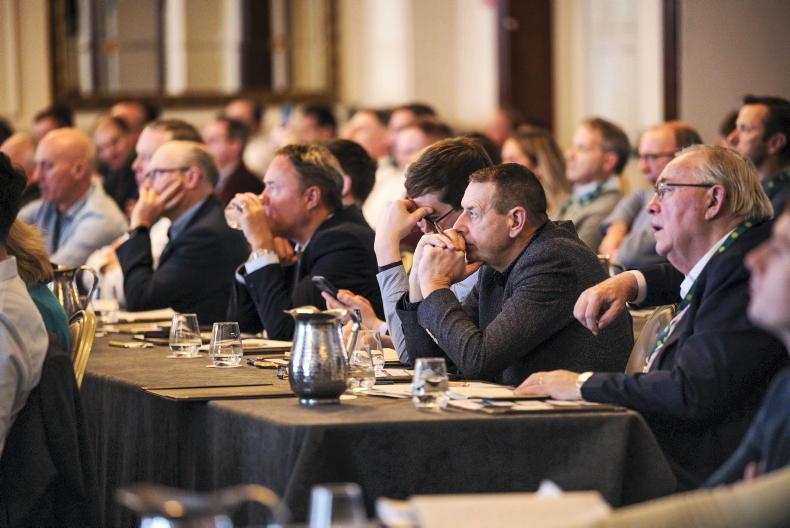Calling for reduced cow numbers is popular now. It is considered by some to be necessary to do our duty for climate change, and as we watch wildfires raging and flooding extremes around the world, it seems to make sense.
We must delve deeper though. Superficial knee-jerk reactions of “you [agriculture] are to blame” need more analysis – we must consider the consequences of any actions. It strikes me that there is a parallel between the blaming of agriculture and the west’s finger-pointing at China for its emissions. Sure, they could produce their energy cleaner, but the fact that their emissions are so high is because of the world having effectively outsourced much of its manufacturing to China.
The message should be “make haste slowly”. Consider the consequences of any actions, the unforeseen consequence syndrome. The recent Oxfam report sounds a salutary warning for well-meaning policymakers. It clearly states that food production is complex and has evolved to where and how it is produced over a long period of time. Ill-considered changes should be avoided and all changes must be fully considered.
Global problems need global solutions, not policies that hurt local economics and damage individual livelihoods while failing to address the problem at large. Challenging popularism should not be confused with climate change denial.
Several years ago, the US embarked on a policy of using corn to produce ethanol to replace fossil oil as vehicle fuel. The unforeseen consequences were to drive up the global price of bread flour and, in some countries, result in extreme hunger and food-induced riots far removed from where the initial decision was made.
Currently, the great aquifers of the world are in serious decline. Lake Mead, the biggest reservoir in the US, which provides the water for the irrigation of most of the crops in the western states, as well as the water for 40m people, is at historic low levels and is not being replenished at a required rate due to lower snowfall in the nearby mountains.
The Iraq wheat harvest is down 70% this year due to climate change and a decline in the water levels in the iconic Tigris and Euphrates rivers. This is especially sad when we consider that this is the part of the world that first cultivated cereals 10,000 years ago. The mighty Murray River in Australia, vital to agriculture in the region, is reduced to a muddy pond at times. The previously enormous Aral Sea in central Asia is a fraction of its former size due to irrigation and water draw-off. These are just some examples of global freshwater decline.
Water is vital
Water is the one vital component for life – and, obviously, food production – and Ireland has it in abundance. It is somewhat ironic that water is the most visible consequence of climate change, while it is also the use of water that will define how we deal with the worst effects of the changes that are inevitable.
It may be considered a dereliction of our duty to make the case for more production here in Ireland, but we should model the consequences of reducing output here, considering what’s happening elsewhere. It is time for a mature debate.
Climate modelling suggests that Ireland is to become wetter and likely to have more extreme cold/hot cycles. There is major worry about what will happen if/when the North Atlantic cycle shuts down, but we probably have some time before this happens. In the meantime, we need food for a hungry world.
We can have the idealism debate on whether it is our duty to feed millions, but it is much more fundamental than that. We produce good food and we do it well. We effectively harvest rain and turn it into food for parts of the world that have little food and ever-decreasing water supplies. We export water.
Proper carbon/climate impact accounting of all products seems to me to be the only fair and practicable thing. This way, the consumer and governments can know the relative impact of Brazilian soya-fed beef versus grass-fed Irish beef or dairy products. There are huge opportunities for Ireland, but it will have to be globally comparable. We should, on the one hand, know what our carbon output is on each farm.
A matrix of figures taking area, purchased feed and fertiliser and the system of farming into account, will provide this. This way, we can have targets and meaningful measures to drive this figure down. In turn, we must get credit for the carbon stored and sequestered on each farm. This is equitable and logical. If fossil fuels are counted where they are used rather than where they are produced, why should food be any different?
Sensible
We can’t expect a free pass. We need to and will do our bit, but let it be sensible, proportionate and globally logical. The defence that “we are doing our bit, but others need to do more” will not suffice. It just won’t work expecting people to “do the right thing” if they lose money by doing so.
We need to create a positive message. Adversarial reactions from both sides leads to unnecessary rancorous debate in Ireland and should stop as a first step. We are all in this together and we won’t get out by fighting with each other.










SHARING OPTIONS